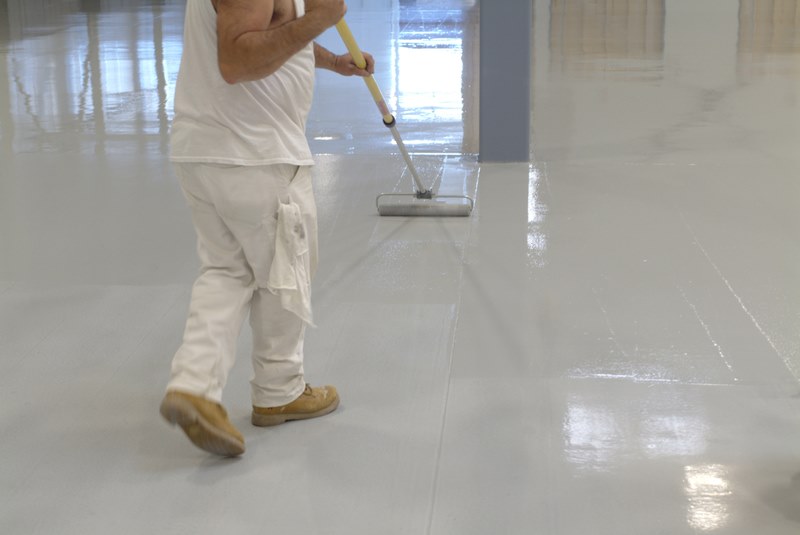What is Resin Flooring?
Resin flooring is a hard wearing plastic exterior, generated by blending a selection of components jointly to institute a swift and managed chemical response. The chemical response creates an extremely long-lasting finish. In the easy form, a resin covering consists of discrete hardener and a formulated synthetic resin. As discharge requirements escalate, it usually leads to an increase in the thickness of resin floor, and the variety of components increases to involve pigments, decorative flakes, or chips, aggregates, and in some instances, cement powder. The thicker type of resin floor is consistently firmer than concrete.

Most resin floors use a primer which can react with the substrate to produce an excessive powered and dependable bond, which is necessary for the durability of the flooring. The primer is usually followed by a significant structural coating, generally known as the body coat which produces the volume and thickness of the floor, and offers numerous crucial performance components like flexibility, overall strength, and resistance, as well as establishing the attractive finish of the floor. Most resin floors can be completed with one to three seal coats to enclose the body cover and ornamental component of the flooring. This also offers the ultimate performance attributes such as wear and chemical resistance. Here are the three main types of resin flooring.

Polyurethane
This resin flooring provides great resistance to the collision, wear, and chemicals. However, the significant advantage of this resin flooring is its opposition to direct heat and high temperature. For this reason, it is used in many industries such as bakeries, where there may be higher temperatures etc. Although polyurethane may not be as hard as epoxy flooring, it is more optimal in places with a great amount of heat variation, and also available in many distinct finishes.
Epoxy
Possibly the most ideal and broadly utilised kind of manufacturing resin flooring, this resin flooring is a thermoset substance that provides the durability and performance of resin flooring, and is the best flooring alternative for electrically conductive flooring. There are numerous kinds of epoxy resin accessible, providing different benefits for different applications. All epoxy floorings are sturdy and can bond totally to concrete, thus safeguarding the basic concrete from abrasion, wear, collision, oil, water ingress, and a broad span of chemicals. If an epoxy resin flooring is vandalised however, it must be entirely restored, which could mean re-sanding the wooden flooring. Therefore, due to the prolonged restoration time for all resin flooring alternatives, a spontaneous restoration can be expensive to a business.
Methyl Methacrylate
This is an artificial resin, also known as acrylic glass. It’s used to produce common items like Lucite, Perspex, and Plexiglas. Categorized as thermoplastic resin, this resin flooring can be extremely customized for exact manufacturing requirements like electrical resistance, chemical resistance, and slip resistance. The differentiating attribute of this resin flooring is it’s unbelievably easy to use and hardening time. This quick restoration time guarantees that the floor can be totally installed and entirely rehabilitated over a weekend, ensuring minimal downtime for manufacturing and production services.
Why Pick Resin Flooring?
Resin flooring is usually chosen for one of the following reasons:
Safeguards the Substrate from Harm
A lot of resin flooring systems provide far superior wear, collision, and chemical opposition than the substrate they shield.
Provides Unequaled Cleanliness and ease of Preservation
Resin flooring is hygienic, seamless, and straightforward to clean. They also cease the cleaning of cementitious substrates.
Generates a Safer Working Habitat
Slip opposition types of resin flooring provide remarkable performance in production habitat, and their cleanliness makes them perfect for healthcare services.
Hope you have enjoyed reading this blog post, if you have any enquiries, or wish to contact us.
